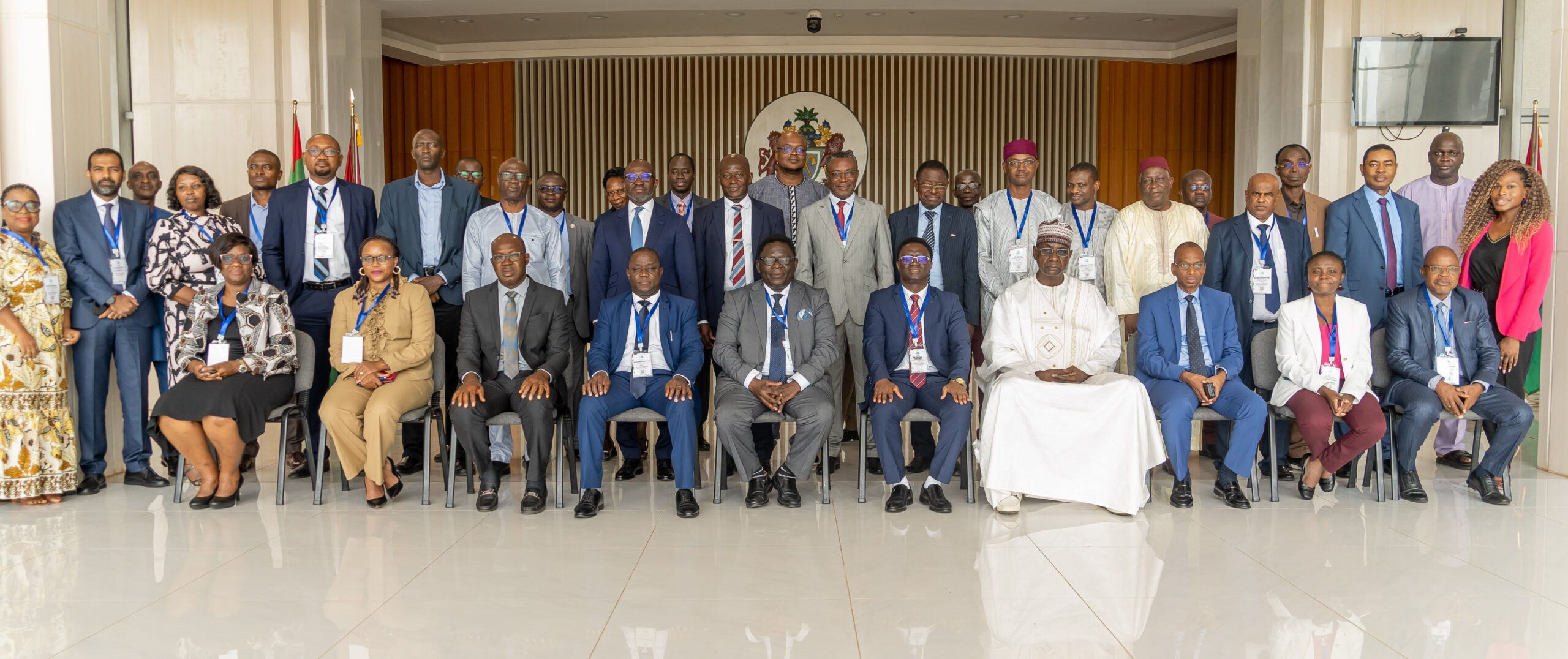Women urged to invest in their careers, make sacrifices today to reap great benefits tomorrow
Women urged to invest in their careers, make sacrifices today to reap great benefits tomorrow
Women in Africa’s higher education sector, especially those in the Africa Centers of Excellence for Development Impact, have been encouraged to make the necessary investments and sacrifices to acquire the requisite technical skills and knowledge to advance their careers and to enjoy the benefits that come from such an investment in later years.
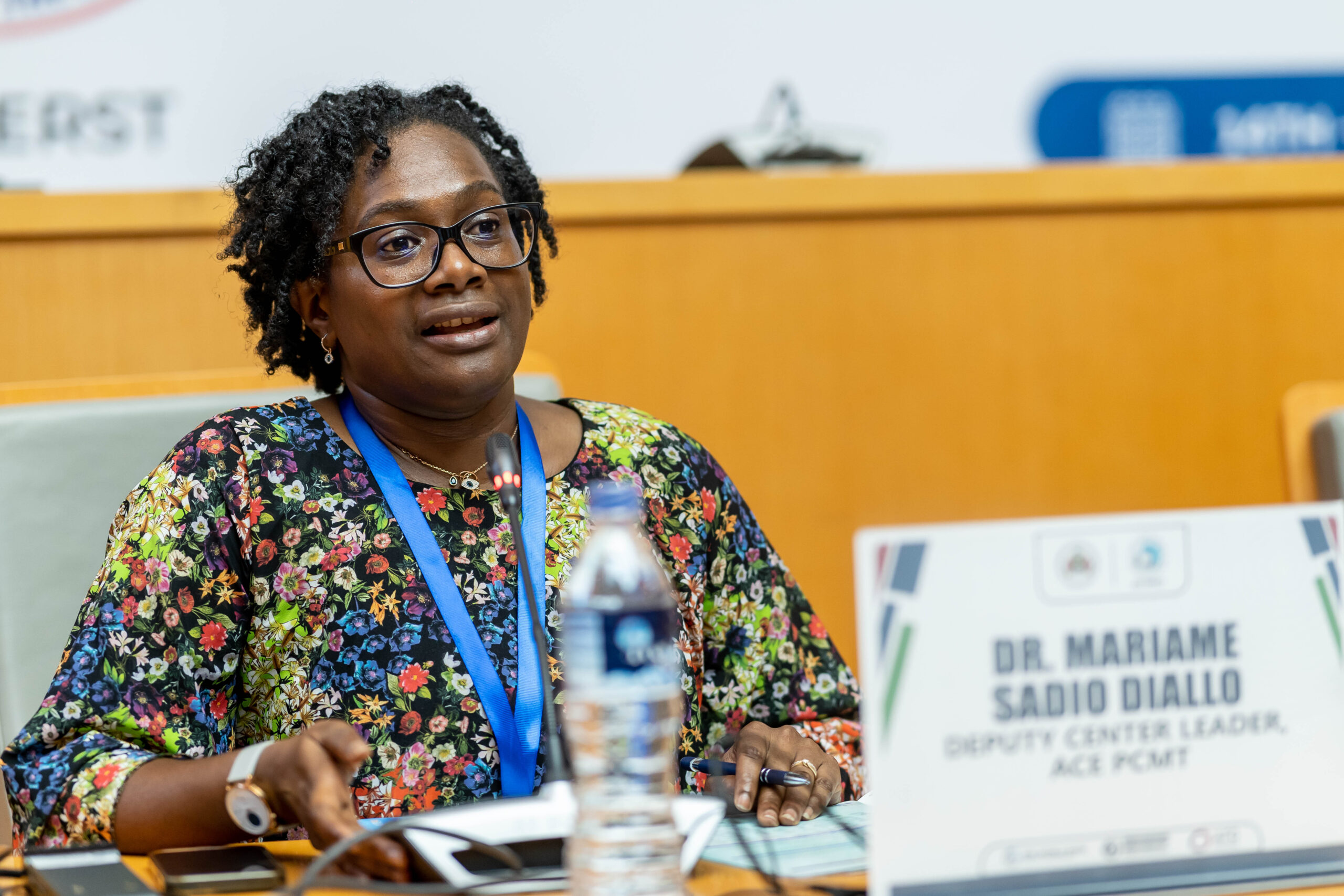 Several initiatives have been implemented by the ACE Impact project to promote gender inclusiveness and specifically to ensure that women are empowered through the project. Aside from having a core indicator that promotes the recruitment of female students to the centres, the project has instituted a well-coordinated gender initiative which regularly rolls out capacity-building trainings among others and engages the centres on the issue of women empowerment.
Several initiatives have been implemented by the ACE Impact project to promote gender inclusiveness and specifically to ensure that women are empowered through the project. Aside from having a core indicator that promotes the recruitment of female students to the centres, the project has instituted a well-coordinated gender initiative which regularly rolls out capacity-building trainings among others and engages the centres on the issue of women empowerment.
Addressing participants at the 8th ACE Impact regional workshop in The Gambia in a plenary session on career perspectives for women, Prof. Hadiza Galadanci, the Center Leader for the Africa Centre of Excellence for Population Health and Policy (ACEPHAP), Nigeria, called on women to view education as an ongoing activity, and to be deliberate about investing their time, resources, and all it takes to gain credibility and recognition as hardworking professionals.
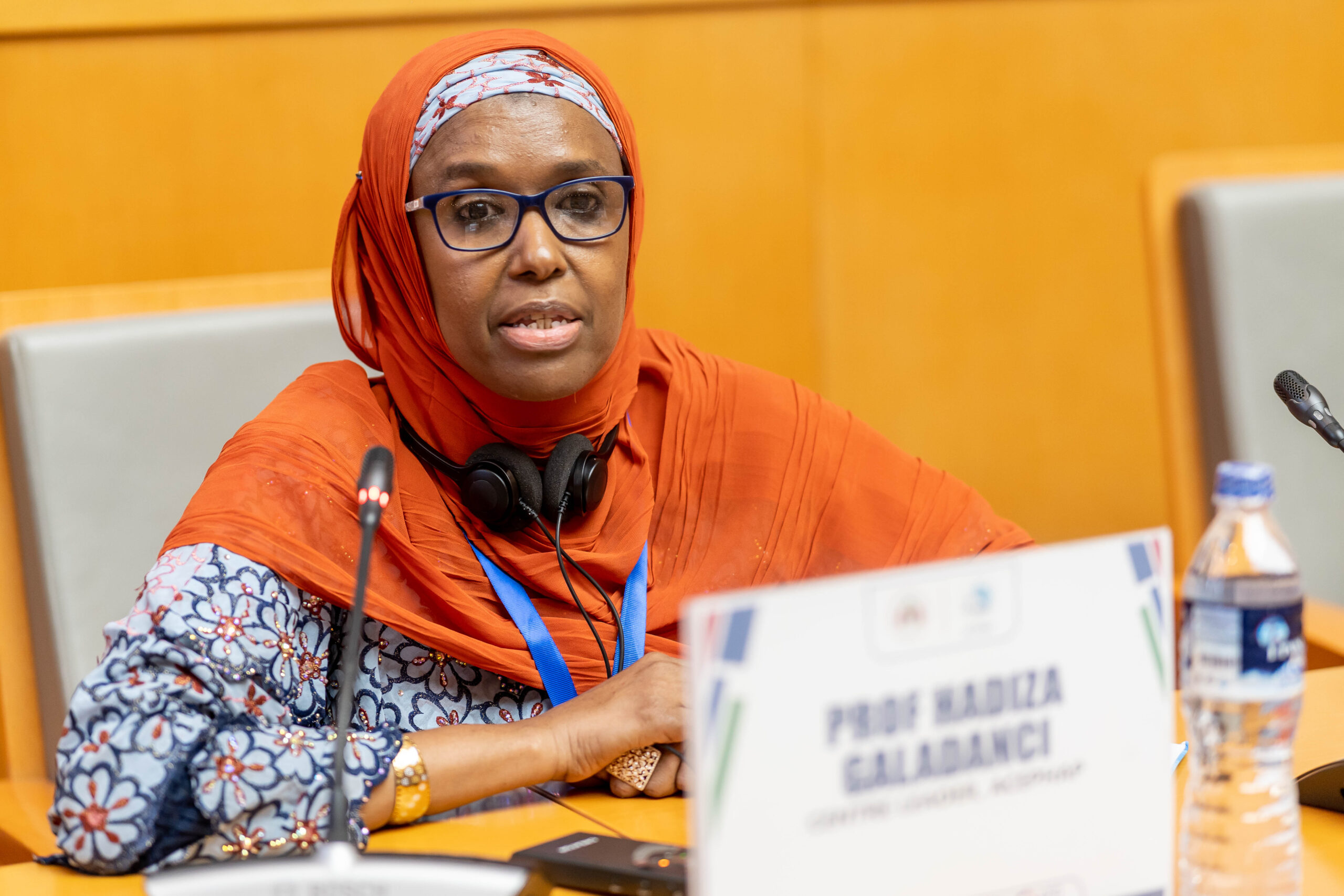 She stressed that the sacrifices made in the early years of one’s career – including investing efforts in gaining visibility, participating in important workshops, seminars, and conferences, building a rich network, and looking out for opportunities to forge partnerships and collaborations, as well as engaging in publishing were among the key factors shaping careers and propelling academics to the top, thus it was necessary, for females to invest in such engagements.
She stressed that the sacrifices made in the early years of one’s career – including investing efforts in gaining visibility, participating in important workshops, seminars, and conferences, building a rich network, and looking out for opportunities to forge partnerships and collaborations, as well as engaging in publishing were among the key factors shaping careers and propelling academics to the top, thus it was necessary, for females to invest in such engagements.
Using herself as a shining example, Prof. Galadanci recounted how her hard work and track record over the years, coupled with the sacrifices she made during the early years of her career, and key attributes such as teamwork, effective time management and being a life-long learner had paid off in the later years of her career. Currently, she provides consultancy services and leads ground-breaking research, as well as serve on various boards and panels, among several other high-profile engagements by both local and international organisations. She attributes all these to the efforts she made earlier towards building a rich career profile.
Prof. Hadiza Galadaci emphasised, that there’s no glass ceiling limiting women, and that women can equally compete with their male colleagues for positions and be selected, if they prove themselves to be hardworking, knowledgeable, and skilled in their areas of expertise. She called on women to work twice as hard as their male colleagues, ensuring a good career-family life balance, in the process.
The plenary session on career perspectives for women, was hosted on Wednesday November 16, 2022, and was chaired by Dr Mariame Sadio Diallo, the Deputy Center Leader for the Africa Center of Excellence for Prevention and Control of Transmissible Diseases (ACE PCMT), Guinea.
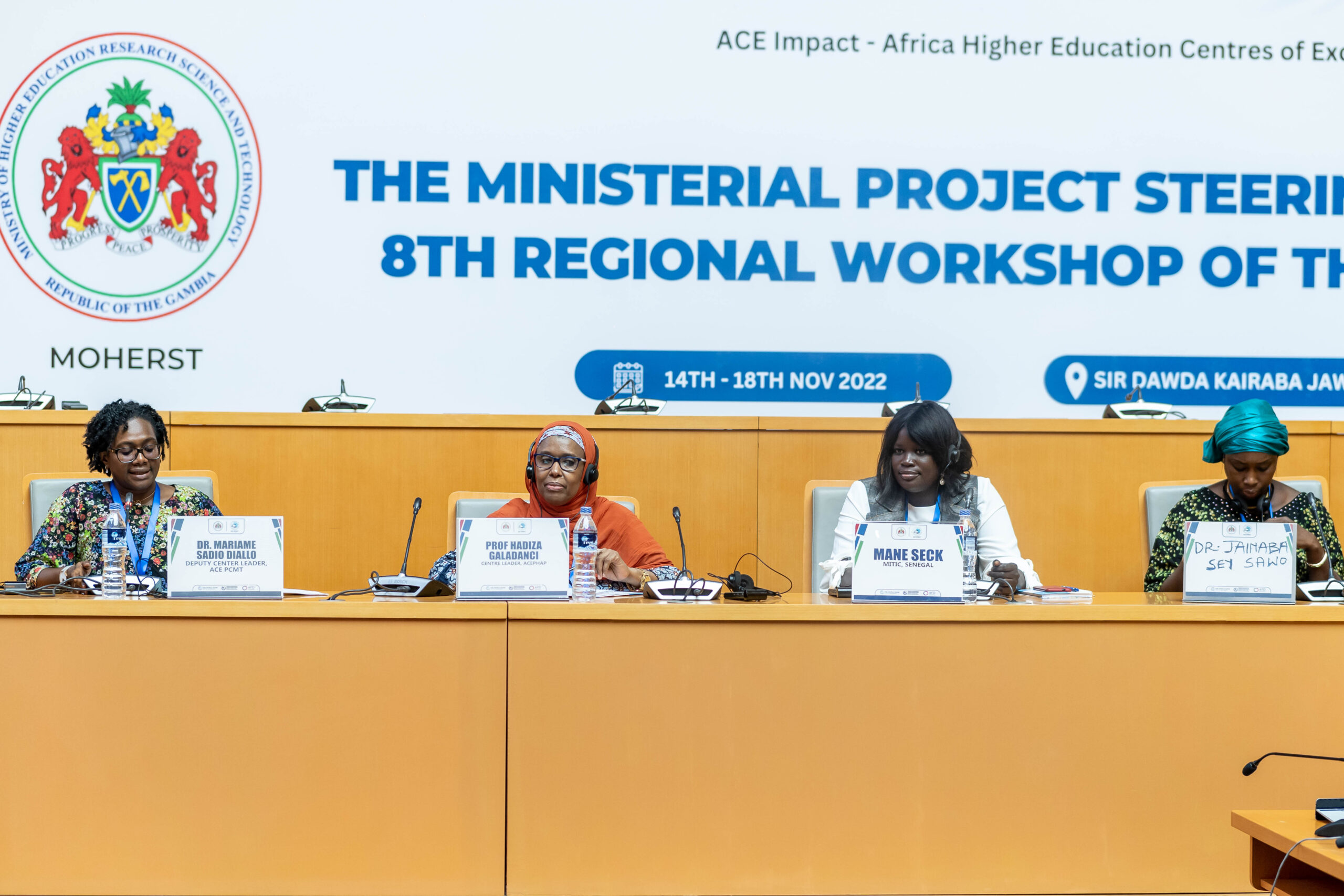 Aside from the keynote speaker, the session featured three panelists, Dr. Mane Seck, MITIC, Senegal, Dr. Grace Sename Peter, ACEGID Nigeria and Dr. Jainaba Sey Sawo (Emerging Center of Excellence on Science, Engineering & Technology for Entrepreneurship)), who are all alumni of the African Centres of Excellence. The objective of the session was to provide an interactive discussion session to help participants reflect on the positive experiences of ACE centers’ female alumni not only for their own sake but also to highlight their contributions to their countries’ economies.
Aside from the keynote speaker, the session featured three panelists, Dr. Mane Seck, MITIC, Senegal, Dr. Grace Sename Peter, ACEGID Nigeria and Dr. Jainaba Sey Sawo (Emerging Center of Excellence on Science, Engineering & Technology for Entrepreneurship)), who are all alumni of the African Centres of Excellence. The objective of the session was to provide an interactive discussion session to help participants reflect on the positive experiences of ACE centers’ female alumni not only for their own sake but also to highlight their contributions to their countries’ economies.
Technical competencies must be accompanied by non-technical competencies for one to excel
The three panelists at this session highlighted the importance of both technical and soft skills in their career trajectories. Dr. Mane Seck, an awardee and winner of the best oral presentation at the 2nd African Conference on Renewable Energy, a conference which was convened in Senegal in 2022 narrated how soft skills such as time management, teamwork and communication had been critical and contributed to the feat that she achieved. The key task for winning the award was for contestants to present a summary of their entire research/thesis in three minutes, and thus for her, content is key, but equally important are the soft skills such as being a great communicator. Dr. Seck also highlighted the important skill of being able to engage partners and availing oneself for participation in international meetings, to gain international exposure.
For Dr. Jainaba Sawo, intimated that having the ability to balance career and family, as well as being committed, determined and hardworking were all important. Her strong technical and soft skills have seen her moving through the ranks to occupy key leadership positions including serving as the head of department for the Department of Nursing and Reproductive Health in her institution (University of The Gambia).
Dr. Grace Senam highlighted the need for women to continue to seek knowledge, collaborate with other professionals and persevere in seeking to excel. Her advice to the next generation of African women in STEM and indeed other fields, was for them to be focused on making an impact in their fields, being problem solvers, having curious minds and to attach themselves to great mentors who would be good support systems to them as they wade through challenges and climb up the academic ladder. Another advice that featured prominently in her submission was for women to desist from competing with others, but rather with themselves, and seek to be better versions of themselves. She called on women not to allow other factors, especially social factors to stymie their career goals, urging them to go after their dreams.
Overcoming the challenges encountered by women
The panelists further deliberated on the challenges faced by women in their pursuit of their career goals, and how to overcome them, suppressing their potential of dimming women’s prospects for career advancement.
Among these, were the lack of confidence, poor IT skills, poor bio-statistics skills, and the social pressure exerted on young women to focus on their gender roles and start a family, just to mention a few.
The panelists encouraged women in academia not to be afraid of taking up new challenges and responsibilities, and to be confident that they could excel. They were also encouraged to seek the requisite knowledge and to ensure that they acquire the needed skills, leveraging on available opportunities to participate in projects and acquire skills in the process, as well as to take advantage of the wider opportunities presented by a boom in online learning. Making it easy to conveniently acquire skills anytime. Young girls were especially encouraged not to succumb to the social pressures that they faced, and to be deliberate about getting the right life partner who would understand and support their career goals, if they so wish to start a family life. The key role mentors must play in helping women and girls overcome all these challenges was again highlighted.
General recent progress recorded by various countries, in banning early marriages and putting in place measures to control gender-based violence, as well as having women role models in key positions to look up to, were all highlighted as good conditions which should give young women some hope for a brighter future.
Call on Centres to show leadership in promoting women empowerment
Dr. Ekua Bentil, Senior Education Specialist and ACE Task Team Leader at the World Bank intimated that it takes a lot of effort and commitment from all parties, including men, to ensure that women succeed, and called on the centres of excellence to work hard to make a difference at the centre levels.
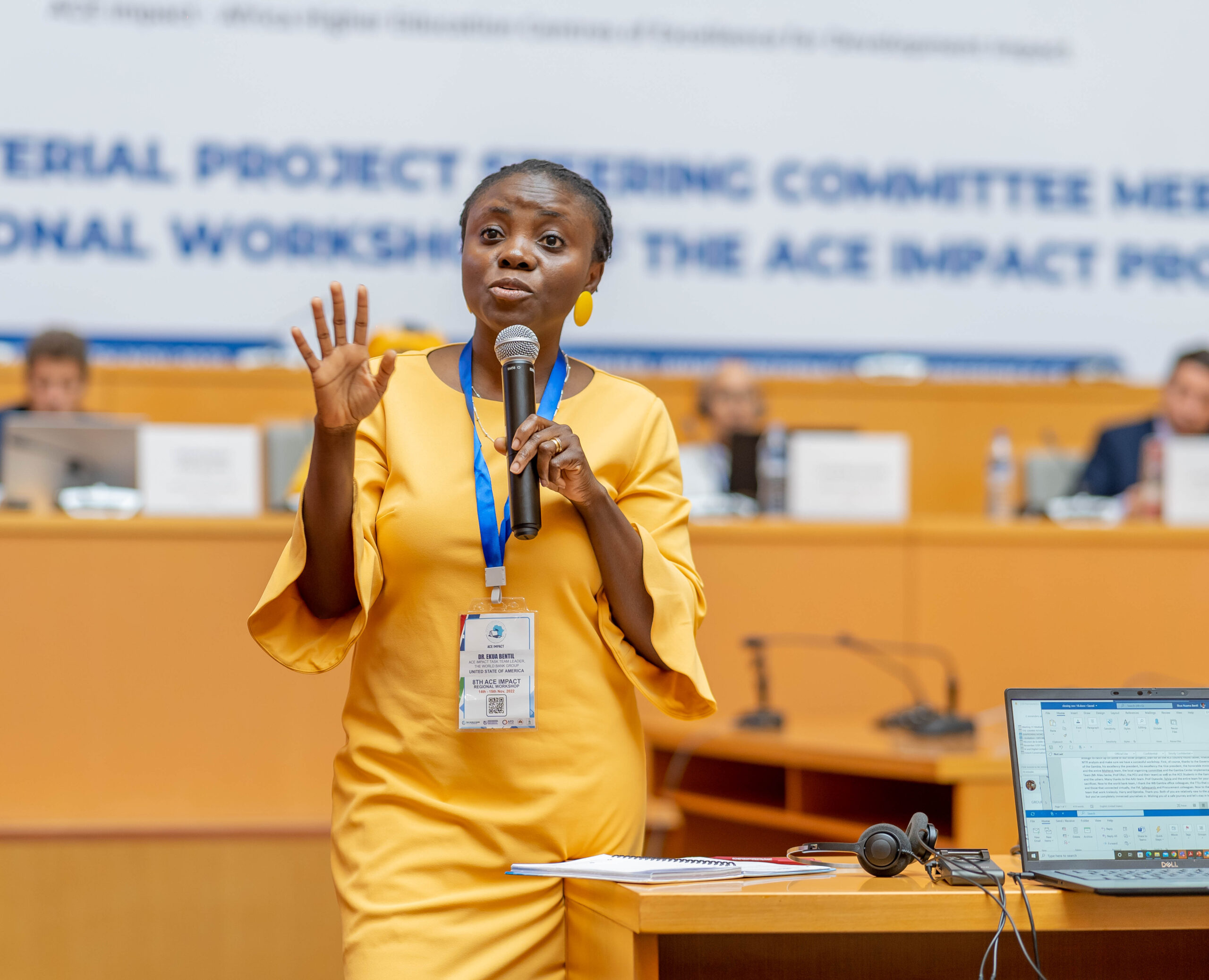 She said that the ACE Impact, as a project of excellence has put in place strategic measures to empower women and that the ACE story, in terms of how it supports women at the centres – both centre team members and students – to overcome various barriers, must be completely different from what exists in the general society and must strive to continue to impact society as well.
She said that the ACE Impact, as a project of excellence has put in place strategic measures to empower women and that the ACE story, in terms of how it supports women at the centres – both centre team members and students – to overcome various barriers, must be completely different from what exists in the general society and must strive to continue to impact society as well.
Way Forward – ACE Impact Project’s intervention to inspire women to be leaders
Ms. Djénéba Gory, a consultant and ACE Impact core team member at the World Bank, reported that so far, the ACE impact has hosted several events focused on women and these include a webinar held in March 2022 (Women’s Month) themed Inspiring Women as Leaders of African Higher Education; a Gender Policies in Action Talk at the 7th ACE Impact Regional Workshop in June 2022; a virtual Negotiation Workshop (October-November 2022) and the Careers Perspective for Women Talk at the 8th ACE Impact Regional Workshop (November, 2022).
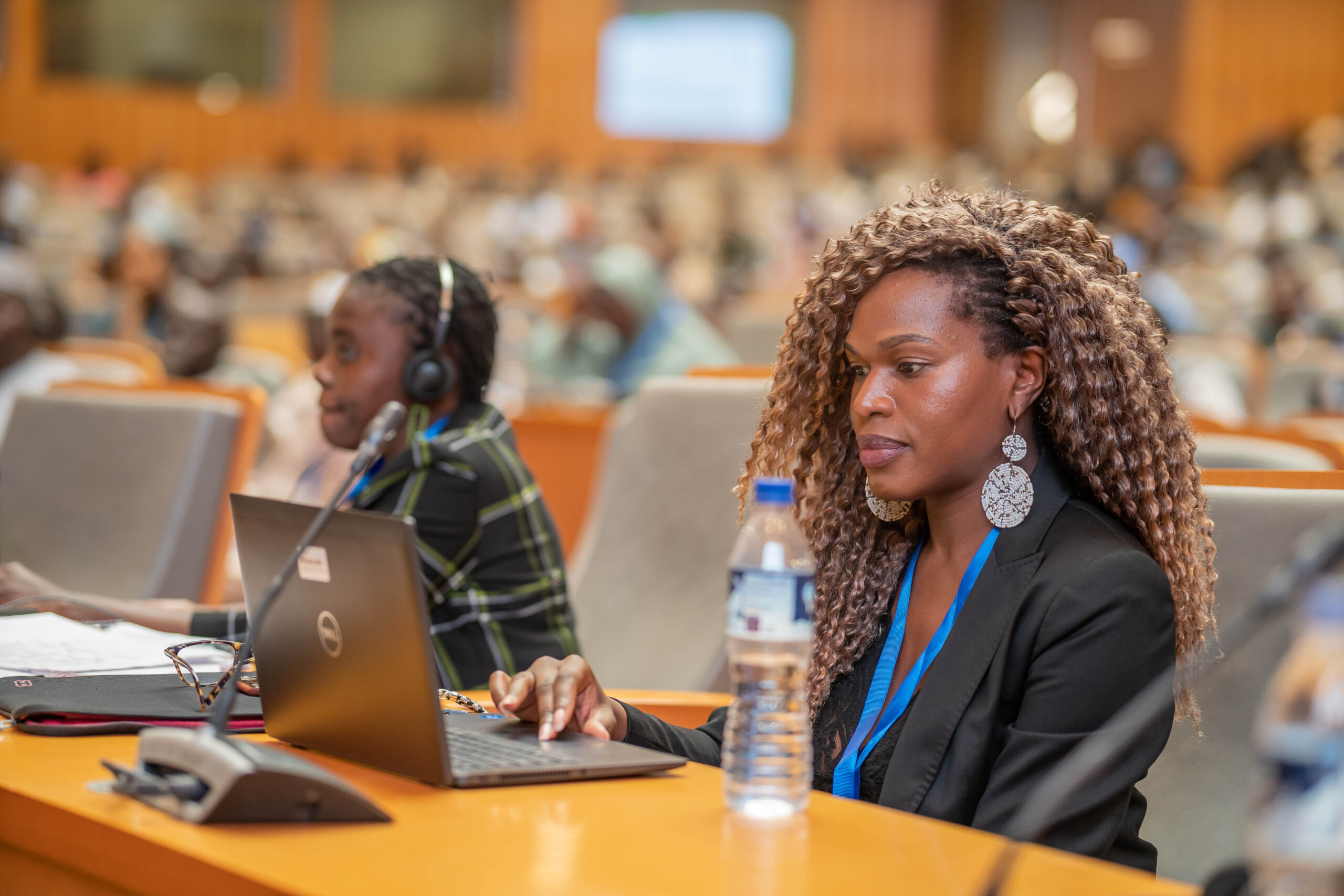 As part of the next steps, the project aims to organise a webinar on Sexual Harassment (January/February 2022), a Leadership Workshop (March/April 2023) and a Careers in STEM Series (May/June) among others.
As part of the next steps, the project aims to organise a webinar on Sexual Harassment (January/February 2022), a Leadership Workshop (March/April 2023) and a Careers in STEM Series (May/June) among others.
Ms. Gory called on Centres to support the various ongoing initiatives, by taking ownership and being agile in terms of leveraging the initiatives to suit their institutional needs.
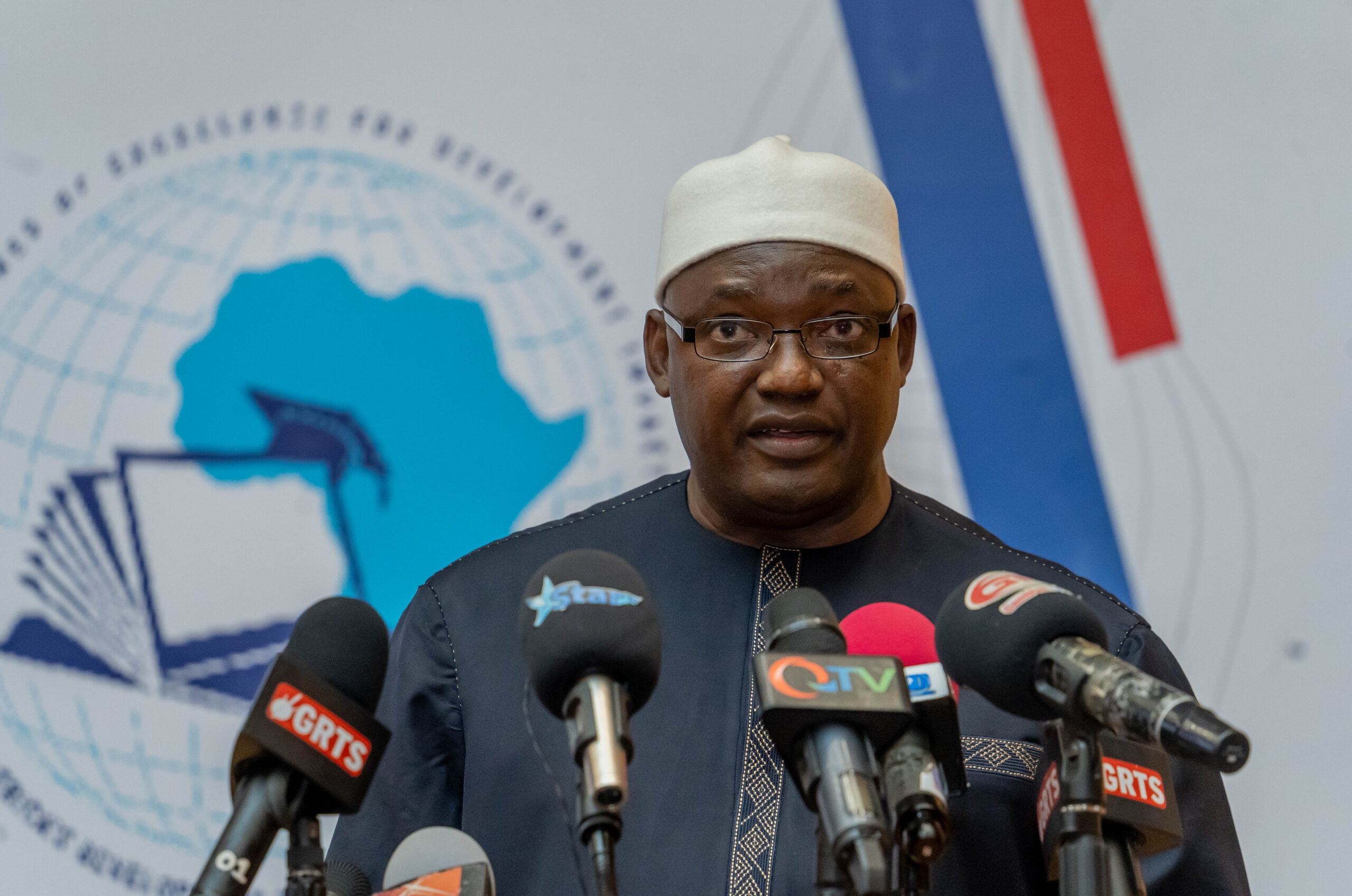
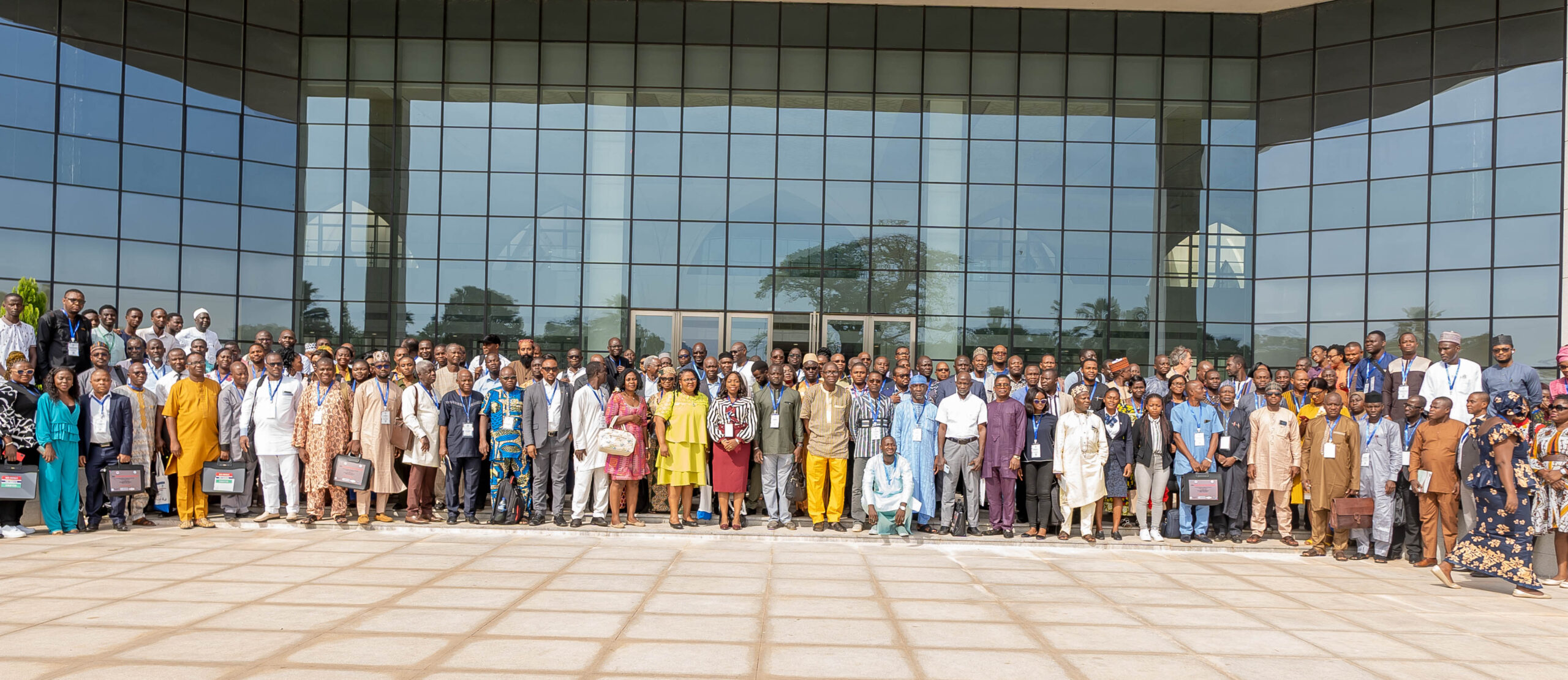 The opening ceremony was attended by prominent dignitaries including His Excellency, The Gambia President, Adama Barrow (who formally opened the regional workshop), Hon. Professor Pierre Gomez, the Gambia Minister of Higher Education, Research, Science & Technology; Hon. Professor Balde Moussa, Minister of Higher Education & Research of the Republic of Senegal; Hon. Karm Mamoudon, Minister of Higher Education and Research, Niger; Hon. Adama Diawara Minister of Higher Education and Scientific Research, Cote d’Ivoire; Hon. Badara Alieu Joof, Vice President of The Gambia; the Secretary General of the Association of African Universities Professor Olusola Bandele Oyewole; Mrs. Feyi Boroffice, the World Bank Resident Representative for The Gambia; Dr. Laurent Cortese, Deputy Director, French Development Agency (AFD) and several other high-ranking officials from the Republic of The Gambia.
The opening ceremony was attended by prominent dignitaries including His Excellency, The Gambia President, Adama Barrow (who formally opened the regional workshop), Hon. Professor Pierre Gomez, the Gambia Minister of Higher Education, Research, Science & Technology; Hon. Professor Balde Moussa, Minister of Higher Education & Research of the Republic of Senegal; Hon. Karm Mamoudon, Minister of Higher Education and Research, Niger; Hon. Adama Diawara Minister of Higher Education and Scientific Research, Cote d’Ivoire; Hon. Badara Alieu Joof, Vice President of The Gambia; the Secretary General of the Association of African Universities Professor Olusola Bandele Oyewole; Mrs. Feyi Boroffice, the World Bank Resident Representative for The Gambia; Dr. Laurent Cortese, Deputy Director, French Development Agency (AFD) and several other high-ranking officials from the Republic of The Gambia.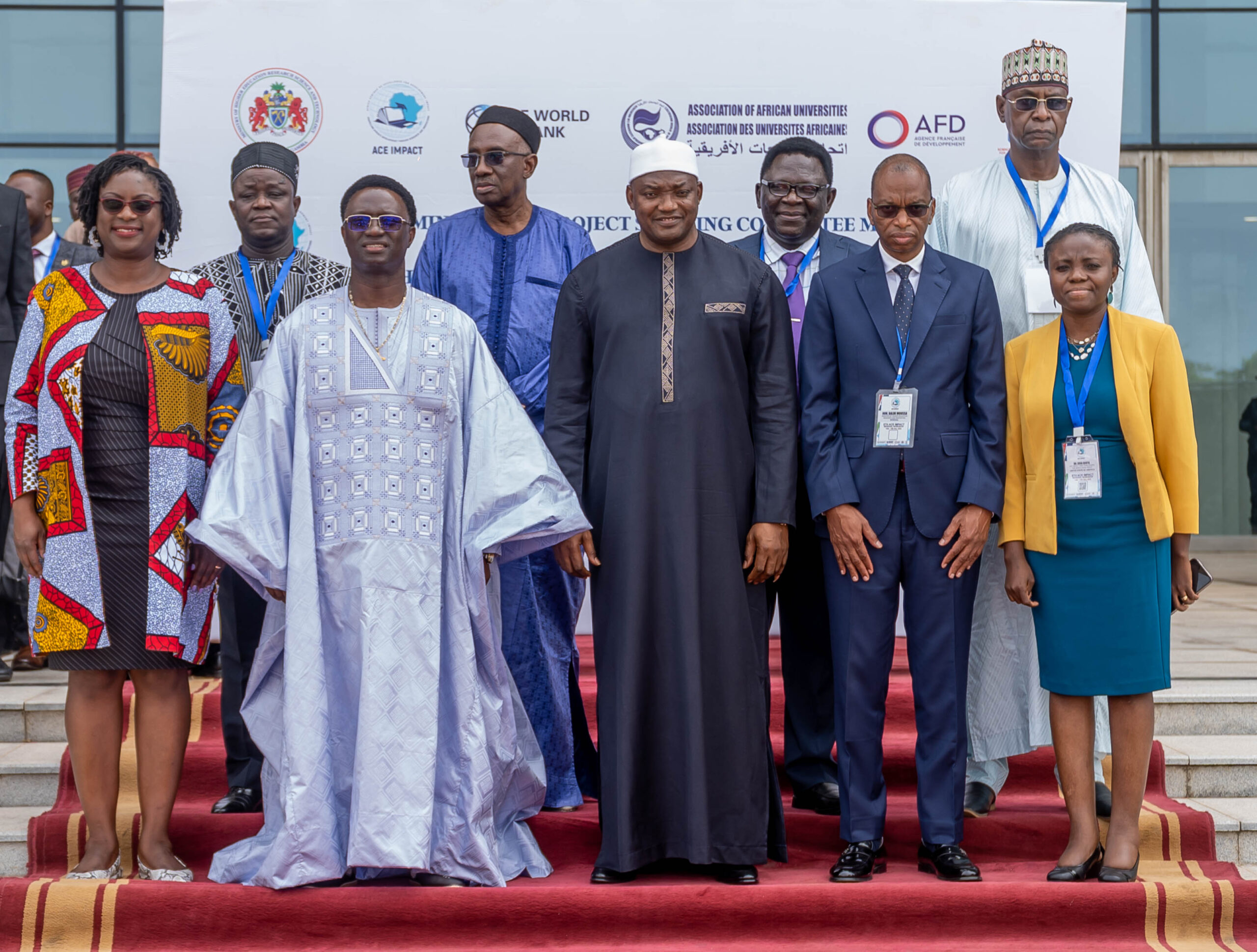 Dr. Yusupha Touray, the Permanent Secretary of The Gambia’s Ministry of Higher Education, Research, Science and Technology chaired the proceedings of the opening ceremony and welcomed the over 450 delegates to The Gambia – which is also nicknamed the ‘smiling coast’ because the country cuts through the middle of Senegal, with its position appearing like that of a smile on the map of the continent. The other distinguished delegates at this meeting included the Project’s Steering Committee Members, Focal Point Officers, Vice Chancellors, Center Leaders, Deputy Center Leaders, Procurement Officers, MEL Officers, Finance Officers, Environmental and Safeguard Officers, Subject Matter Experts, World Bank Officials, Students, AAU Officials, AFD Officials, and other invited guests.
Dr. Yusupha Touray, the Permanent Secretary of The Gambia’s Ministry of Higher Education, Research, Science and Technology chaired the proceedings of the opening ceremony and welcomed the over 450 delegates to The Gambia – which is also nicknamed the ‘smiling coast’ because the country cuts through the middle of Senegal, with its position appearing like that of a smile on the map of the continent. The other distinguished delegates at this meeting included the Project’s Steering Committee Members, Focal Point Officers, Vice Chancellors, Center Leaders, Deputy Center Leaders, Procurement Officers, MEL Officers, Finance Officers, Environmental and Safeguard Officers, Subject Matter Experts, World Bank Officials, Students, AAU Officials, AFD Officials, and other invited guests.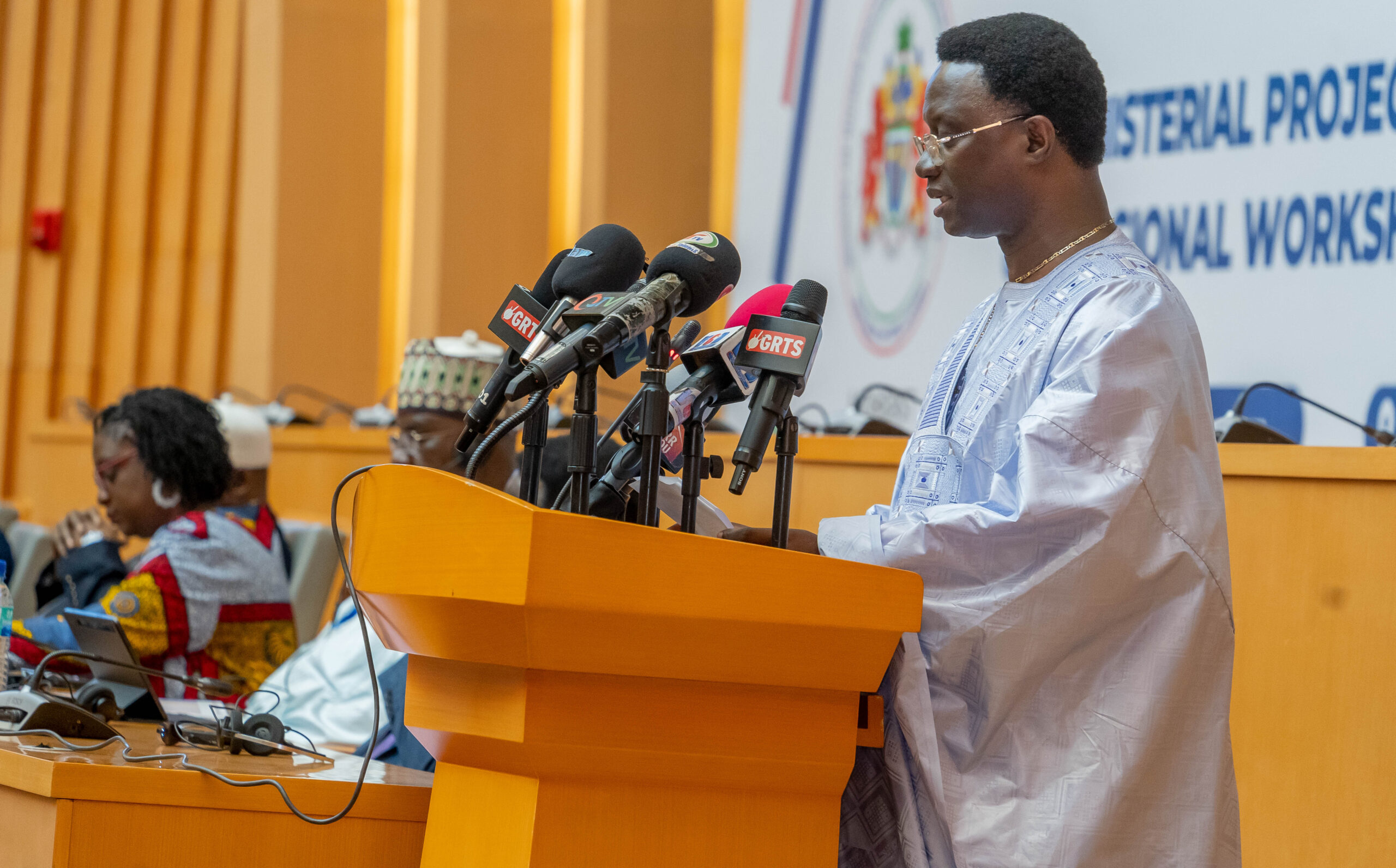 In his welcome remarks, Honourable Professor Pierre Gomez, the Minister of Higher Education, Research, Science & Technology for The Gambia, encouraged participants to take advantage of the 8th ACE Impact Regional Workshop and “establish the right partnerships and networks to help develop Africa’s Higher Education Institutions to be able to compete in the research and innovation global markets”. He acknowledged that The Gambia had benefited tremendously from being part of the Africa Higher Education Centres of Excellence Project – particularly in the areas of human capital development and institutional strengthening. He also said that he was inspired by the diversity of experts from academia and industry who are collaborating under the project to address developmental challenges through education and research.
In his welcome remarks, Honourable Professor Pierre Gomez, the Minister of Higher Education, Research, Science & Technology for The Gambia, encouraged participants to take advantage of the 8th ACE Impact Regional Workshop and “establish the right partnerships and networks to help develop Africa’s Higher Education Institutions to be able to compete in the research and innovation global markets”. He acknowledged that The Gambia had benefited tremendously from being part of the Africa Higher Education Centres of Excellence Project – particularly in the areas of human capital development and institutional strengthening. He also said that he was inspired by the diversity of experts from academia and industry who are collaborating under the project to address developmental challenges through education and research.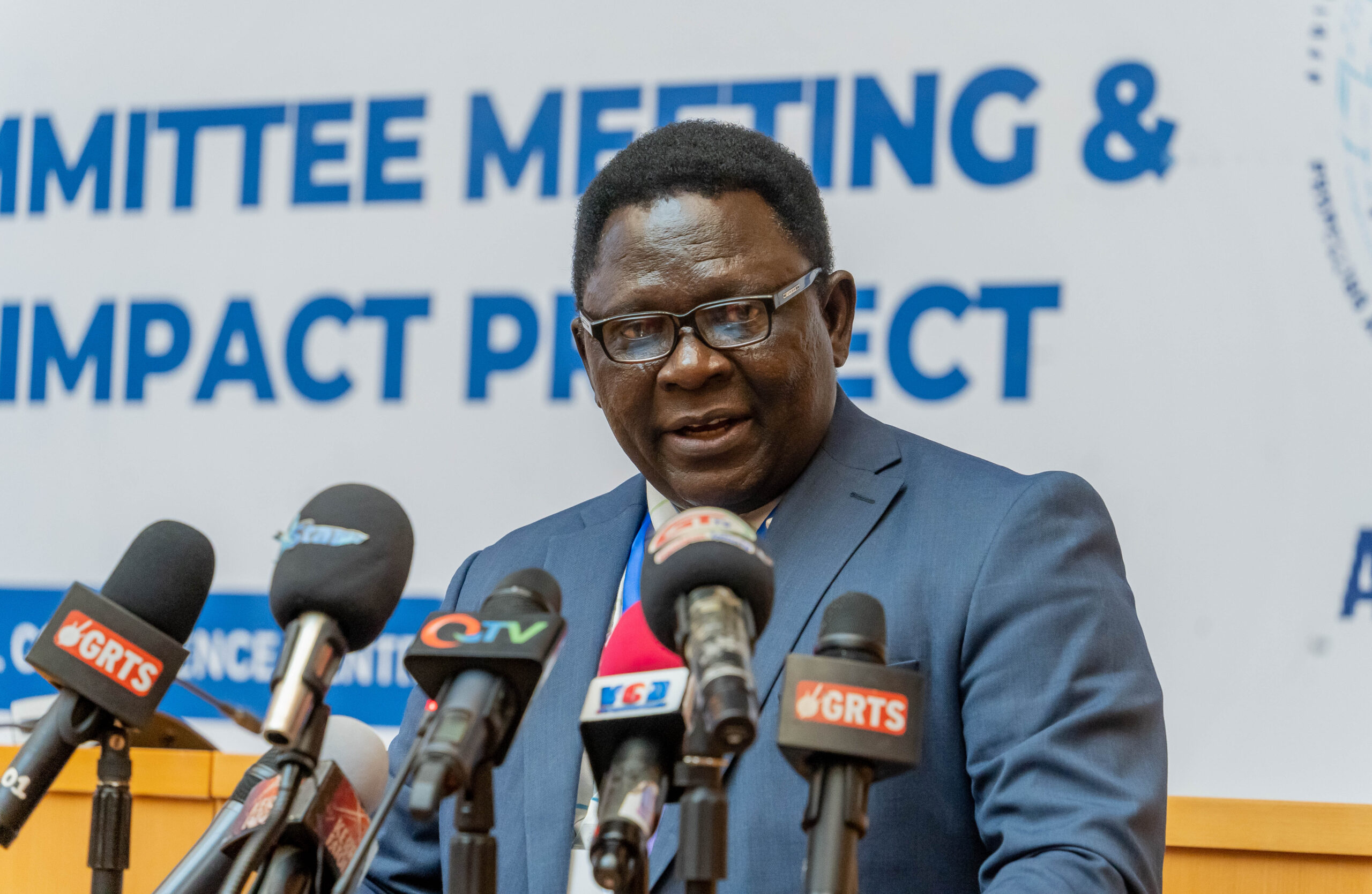 Professor Oyewole extended special gratitude to His Excellency Adama Barrow, President of the Republic of The Gambia, Hon. Professor Pierre Gomez, the Minister of Higher Education, Research, Science and Technology, and the Government of the Republic of The Gambia for hosting the 8th Regional Workshop and Project Steering Committee meeting. He also acknowledged the Republic of The Gambia for its support towards the development of African higher education through the ACE Impact project.
Professor Oyewole extended special gratitude to His Excellency Adama Barrow, President of the Republic of The Gambia, Hon. Professor Pierre Gomez, the Minister of Higher Education, Research, Science and Technology, and the Government of the Republic of The Gambia for hosting the 8th Regional Workshop and Project Steering Committee meeting. He also acknowledged the Republic of The Gambia for its support towards the development of African higher education through the ACE Impact project.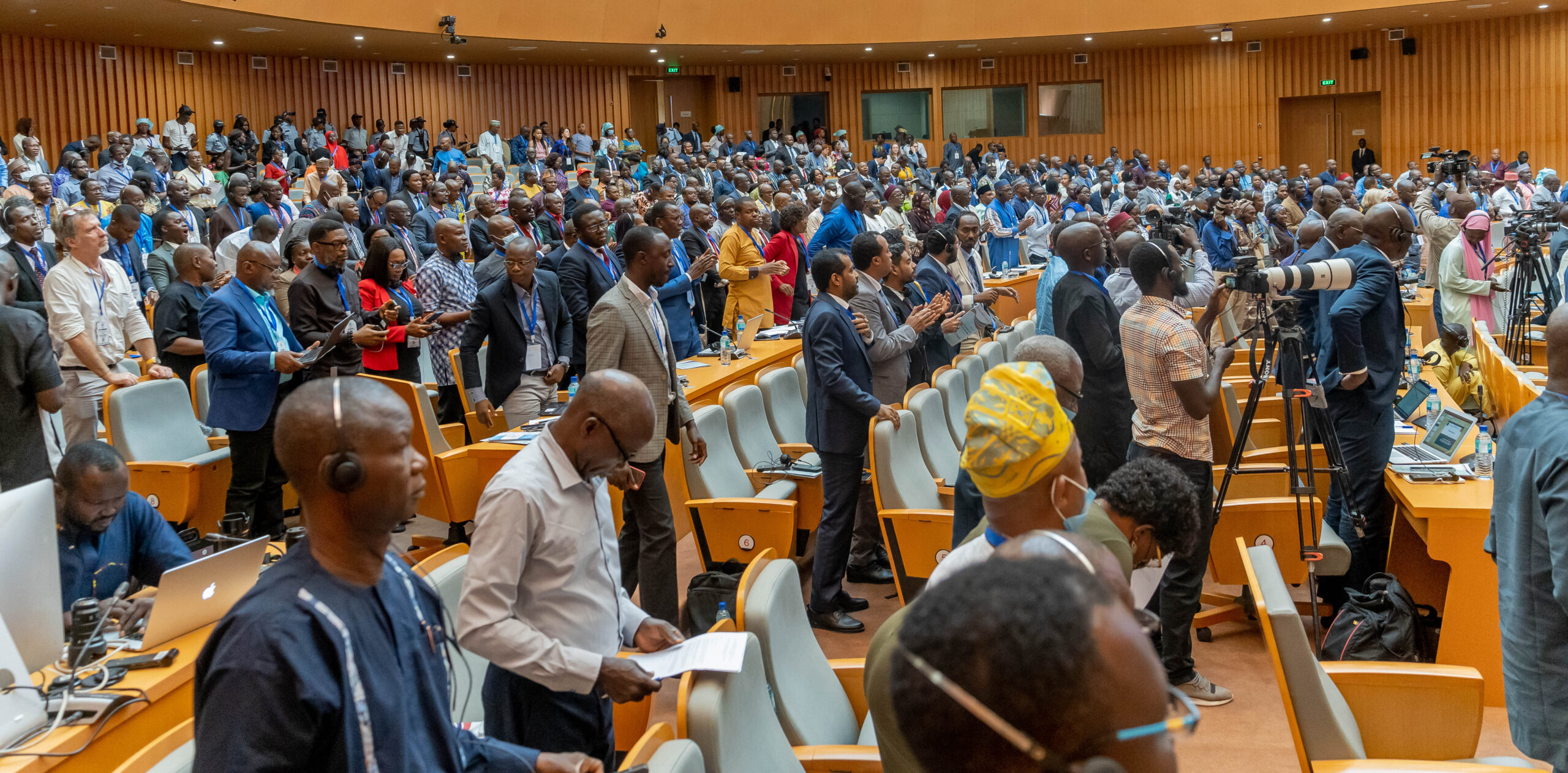
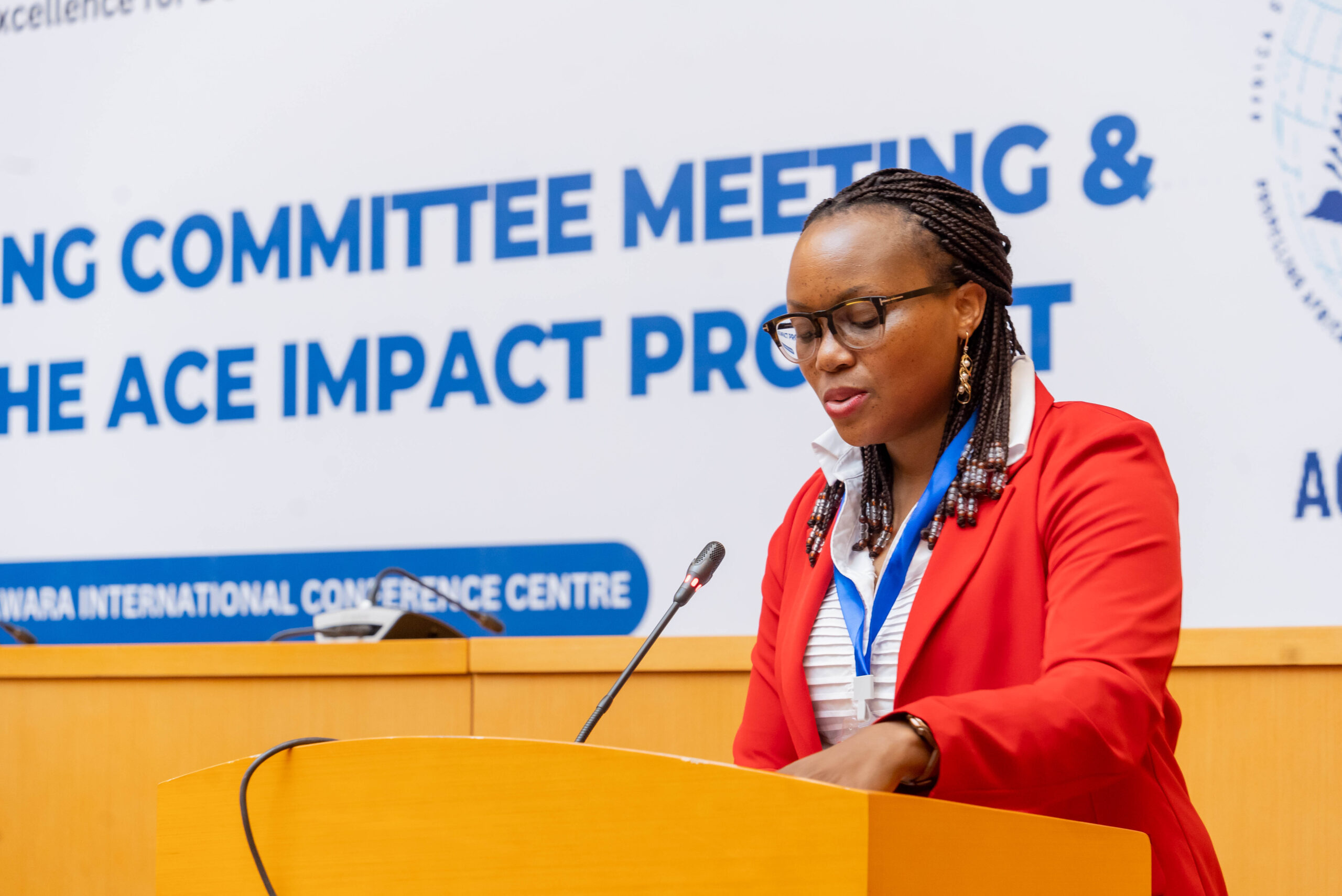 Dr. Mkandawire concluded her report with a call to action for African governments to urgently support the project in the areas of procurement, investments in state-of-the-art infrastructure and sustaining the investments already made. She also reported on the high-level meeting hosted for the ACE Impact Centers and key partners at the World Bank Offices in Washington DC in October 2022. She indicated that the meeting was successful in disseminating the impact of the ACEs and their contributions towards addressing key regional development challenges and global crises in public health, climate change, energy, agriculture, and food.
Dr. Mkandawire concluded her report with a call to action for African governments to urgently support the project in the areas of procurement, investments in state-of-the-art infrastructure and sustaining the investments already made. She also reported on the high-level meeting hosted for the ACE Impact Centers and key partners at the World Bank Offices in Washington DC in October 2022. She indicated that the meeting was successful in disseminating the impact of the ACEs and their contributions towards addressing key regional development challenges and global crises in public health, climate change, energy, agriculture, and food.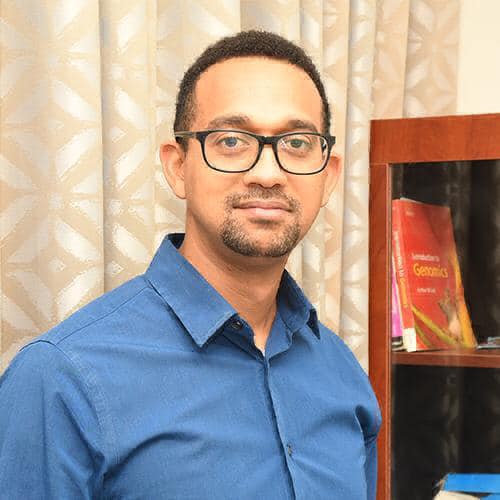
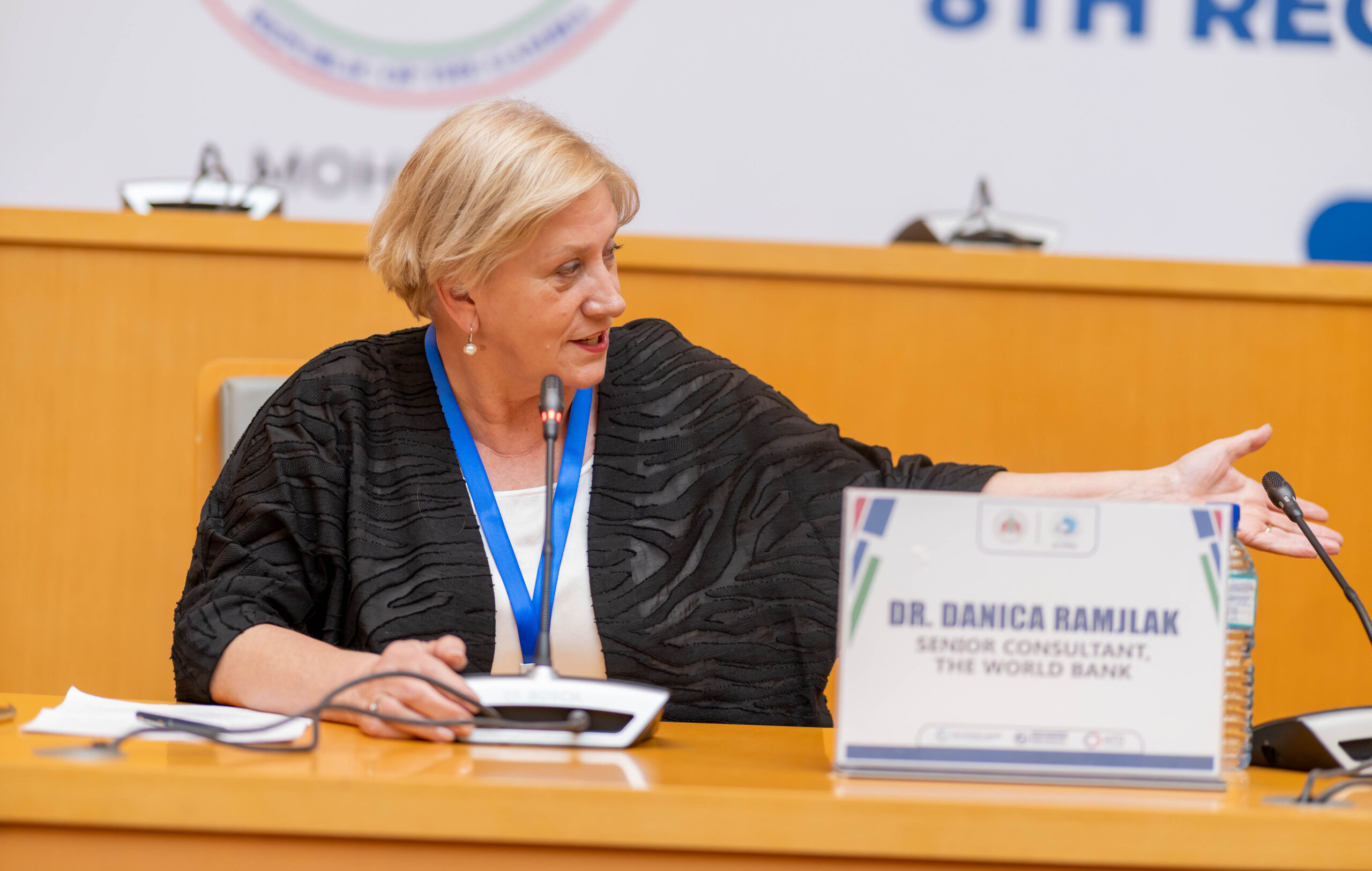 She also urged all ACE Impact Centers of Excellence to coordinate with their respective universities’ leadership so they play their roles as part of the ecosystem by providing leadership, vision, policies, and research infrastructure, entrepreneurial curriculum to boost R&D outputs. She stressed that centers must never work in silos and encouraged them to learn from each other and leverage International and Industrial partnerships in order to succeed.
She also urged all ACE Impact Centers of Excellence to coordinate with their respective universities’ leadership so they play their roles as part of the ecosystem by providing leadership, vision, policies, and research infrastructure, entrepreneurial curriculum to boost R&D outputs. She stressed that centers must never work in silos and encouraged them to learn from each other and leverage International and Industrial partnerships in order to succeed.
